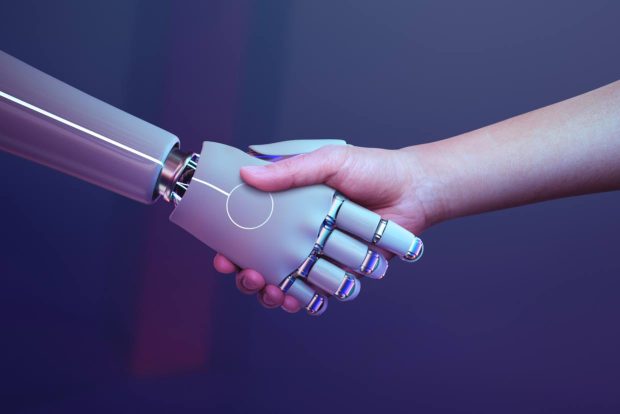UK Department for Work and Pensions accelerates use of robots

The UK’s Department for Work and Pensions (DWP) is accelerating its use of automated systems to handle claims for benefits, in a move some fear will disadvantage welfare recipients.
The DWP has hired nearly 1,000 new IT staff in the last 18 months, and increased spending to about £8m (US$10.3m) a year on its Intelligent Automation Garage: a unit launched in 2017 in which computer scientists are developing over 100 robotic, deep learning and intelligent automation systems.
This new ‘virtual workforce’ is to take over some of the jobs of humans. According to an investigation by The Guardian, which has unearthed further detail on the DWP’s plans, one recent tender document requested help to build “systems that… can automatically carry out tasks without human intervention”.
As well as contracts with a number of multinationals, the department is working with UiPath, a New York-based firm co-founded by Daniel Dines, the world’s first “bot billionaire”, whose machine learning software is being deployed by the DWP to check benefit claims and detect fraud.
It is also testing artificial intelligence (AI) to judge the likelihood that citizens’ claims about their childcare and housing costs are true when they apply for benefits. It is thought the AI software works by comparing claims to thousands of previous applications, and flagging whether they can safely be approved or need further investigation by civil servants.
As of February this year, the department had implemented automation in 15 processes, and was planning to launch another 11 automations over the course of this year. To date, it has deployed 16 robotic process automation systems to help manage claims and communicate with claimants.
Minimum human intervention
This move towards greater automation is thought to be one of the most radical but least understood welfare reforms since the roll-out of Universal Credit. The DWP believes welfare transactions could be handled more quickly, accurately and cheaply using robotic process automation.
“We are striking the right balance between having a compassionate safety net on which we spend £95bn (US$122bn), and creating a digital service that suits the way most people use technology,” a DWP spokesperson said. “Automation means we are improving accuracy, speeding up our service and freeing up colleagues’ time so they can support the people who need it most.”
However, vulnerable claimants told The Guardian they fear the new system could exacerbate poverty in the UK. Some have warned that existing automation in the Universal Credit ‘digital by default’ system is “hostile” and a “form of torture”, and said civil servants already appeared to be ruled by computer algorithms and were unable to contradict machines’ verdicts.
Frank Field, chairman of the Work and Pensions Select Committee, said Universal Credit claimants may be “left at the mercy of online systems” which already “leave all too many people teetering on the brink of destitution”.
Lack of evidence-based consultation?
“There are concerns that government is accelerating the automation of the welfare system without a proper evidence-based consultation about its impacts,” Dr Lina Dencik, co-founder of the Data Justice Lab at Cardiff University, told The Guardian.
“Users have already raised significant problems, and we need to understand which groups are more likely to be targeted by algorithmic decision-making than others to understand if it shows bias.”
A spokesperson for the DWP insisted the department is using AI to help people find work, reduce the burden on claimants to prove their circumstances, and help vulnerable people access welfare more easily without having to provide evidence of their identity.
“We want to be supporting staff and citizens with the information they need, at the right time, and not disadvantaging those who are vulnerable,” they said.
Key details about the DWP’s automation push remain secret, and the department has refused freedom of information requests to explain how it gathers data on citizens.
Australian robo-debt controversy
Some fear the DWP could be moving towards automated systems that would have similar consequences to Australia’s Centrelink robo-debt programme.
The flawed process, which was expanded in 2016 under Malcolm Turnbull’s government, was used to calculate welfare recipients’ income over fortnightly periods, leading to the false assumption that they had worked across an entire year and were ineligible for social security, creating a debt.
The Commonwealth ombudsman, former member of the Administrative Appeals Tribunal professor Terry Carney, and others have argued that the process involved the enforcement of debts that were in some cases inflated or non-existent.
The onus was on the welfare recipient to prove they owed no debt to the government. This was found to have caused significant distress, often to those already suffering from mental health problems or drug and alcohol addiction.























It was a flawed and hole ridden piece of journalism when it was in the guardian and it has not been improved in the re-reporting here. It says very little and does not touch on the real reasons the DWP are looking to make better use of automation.